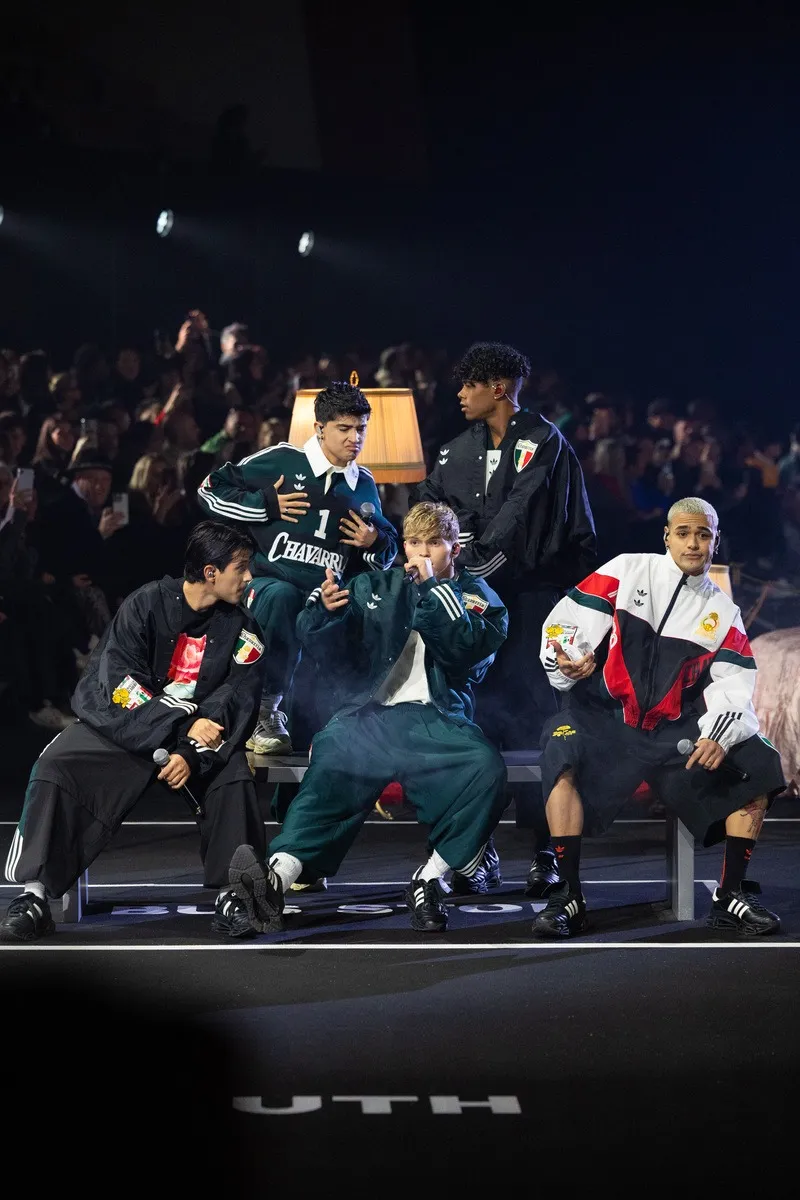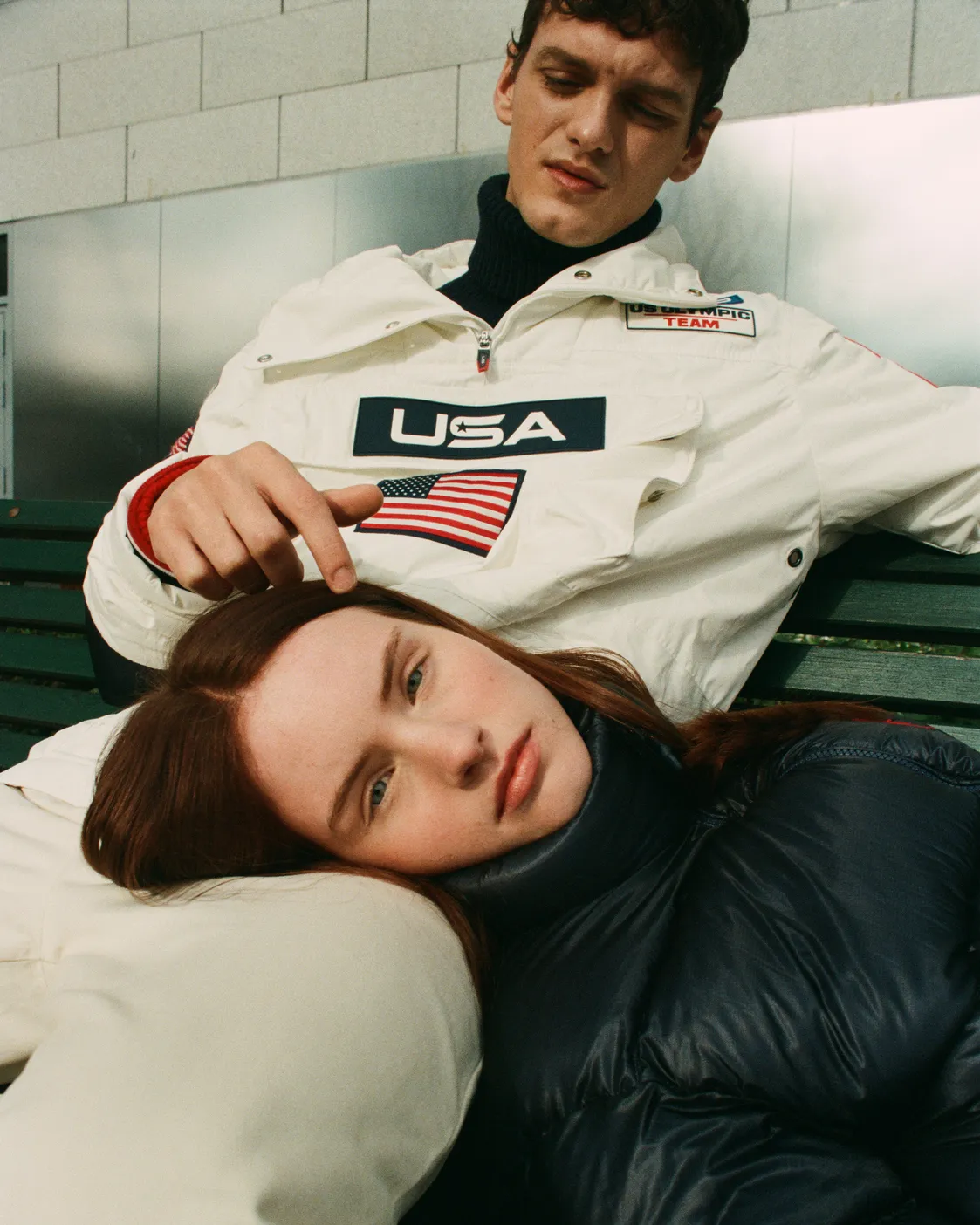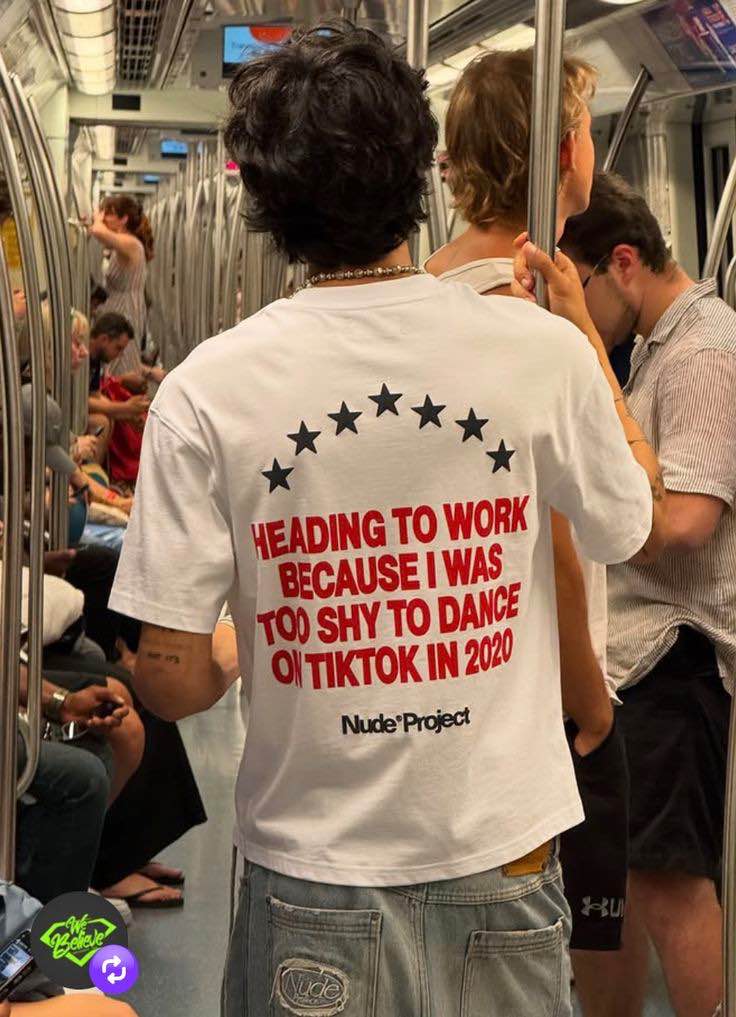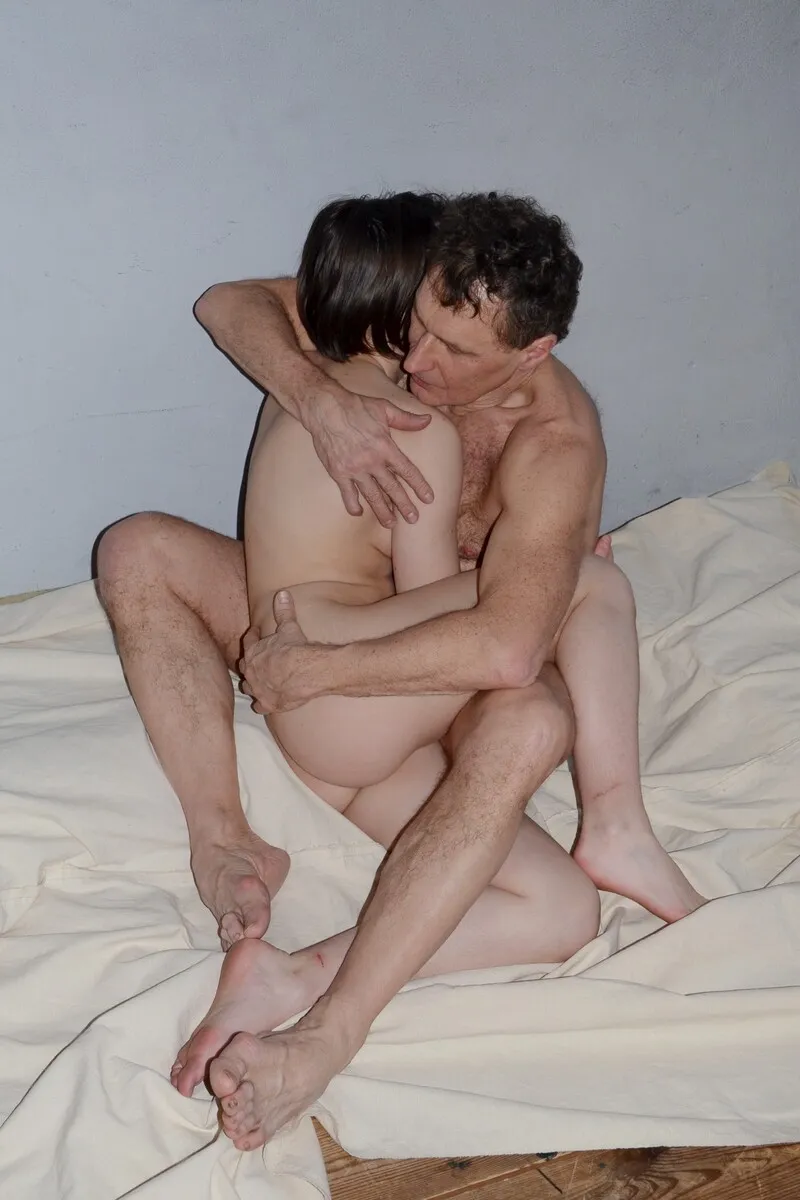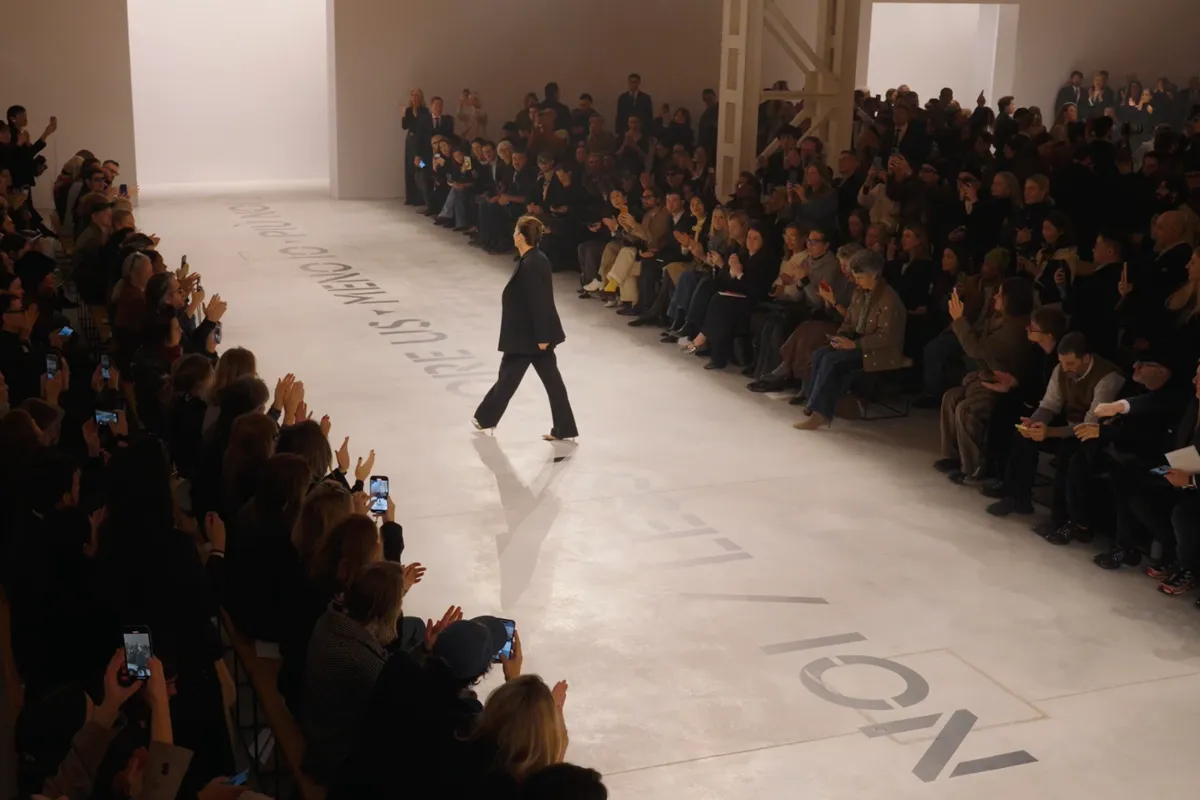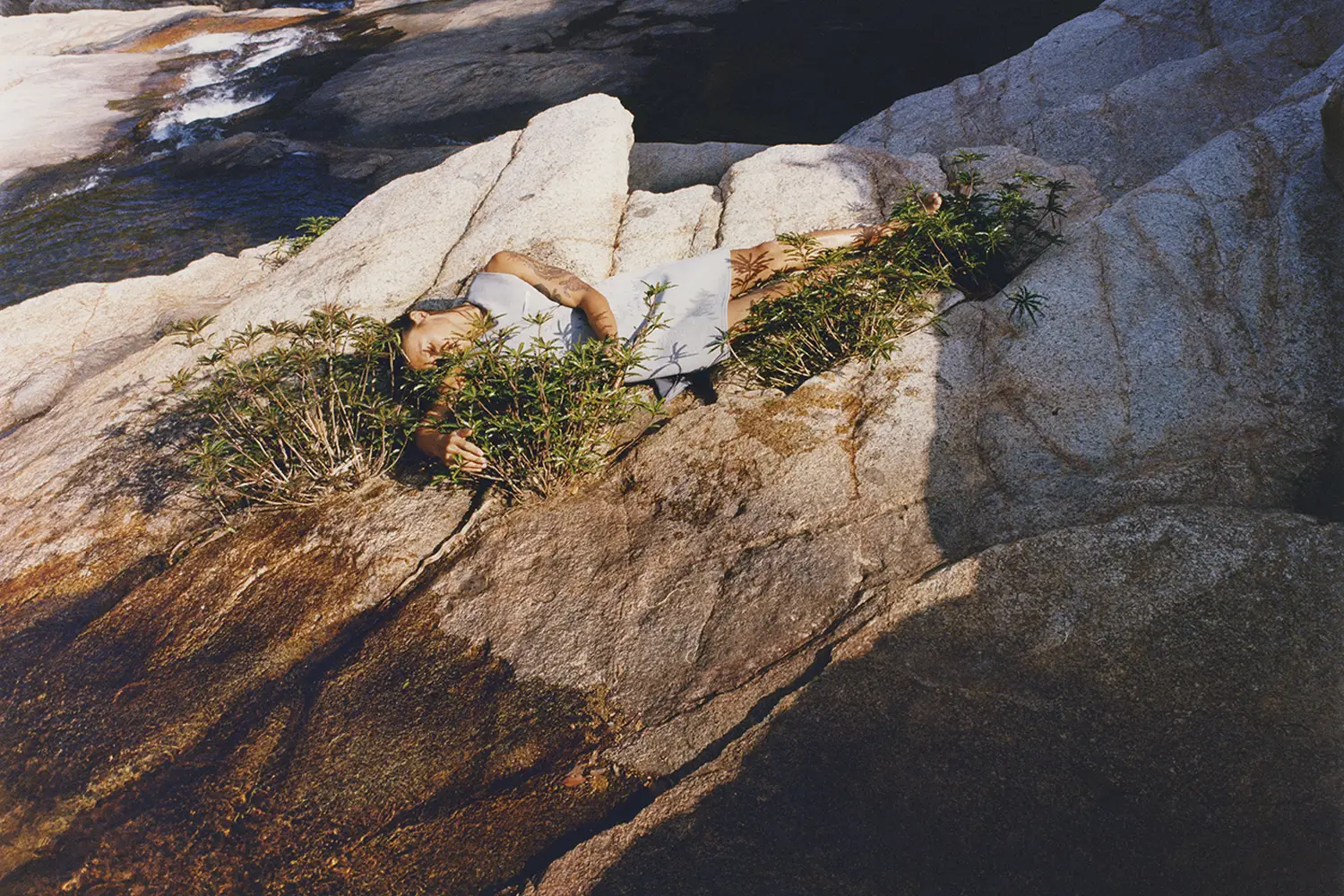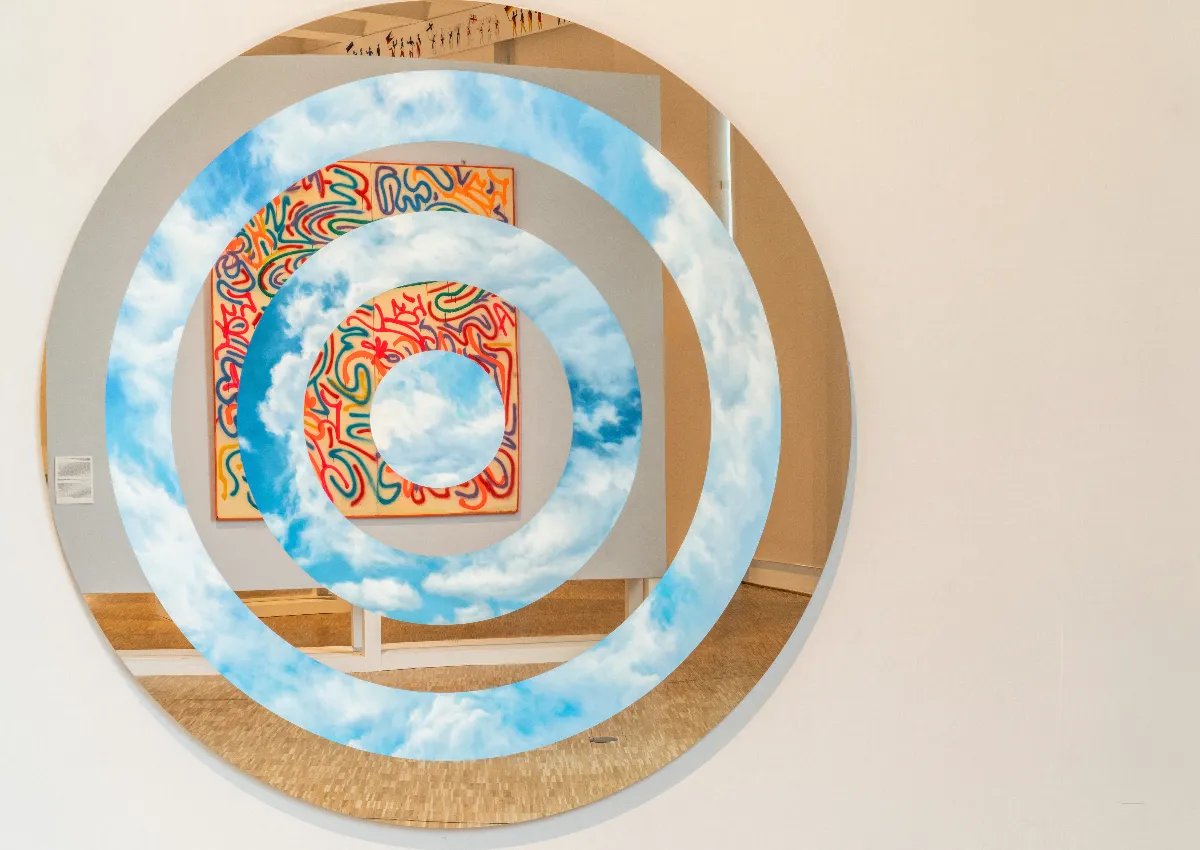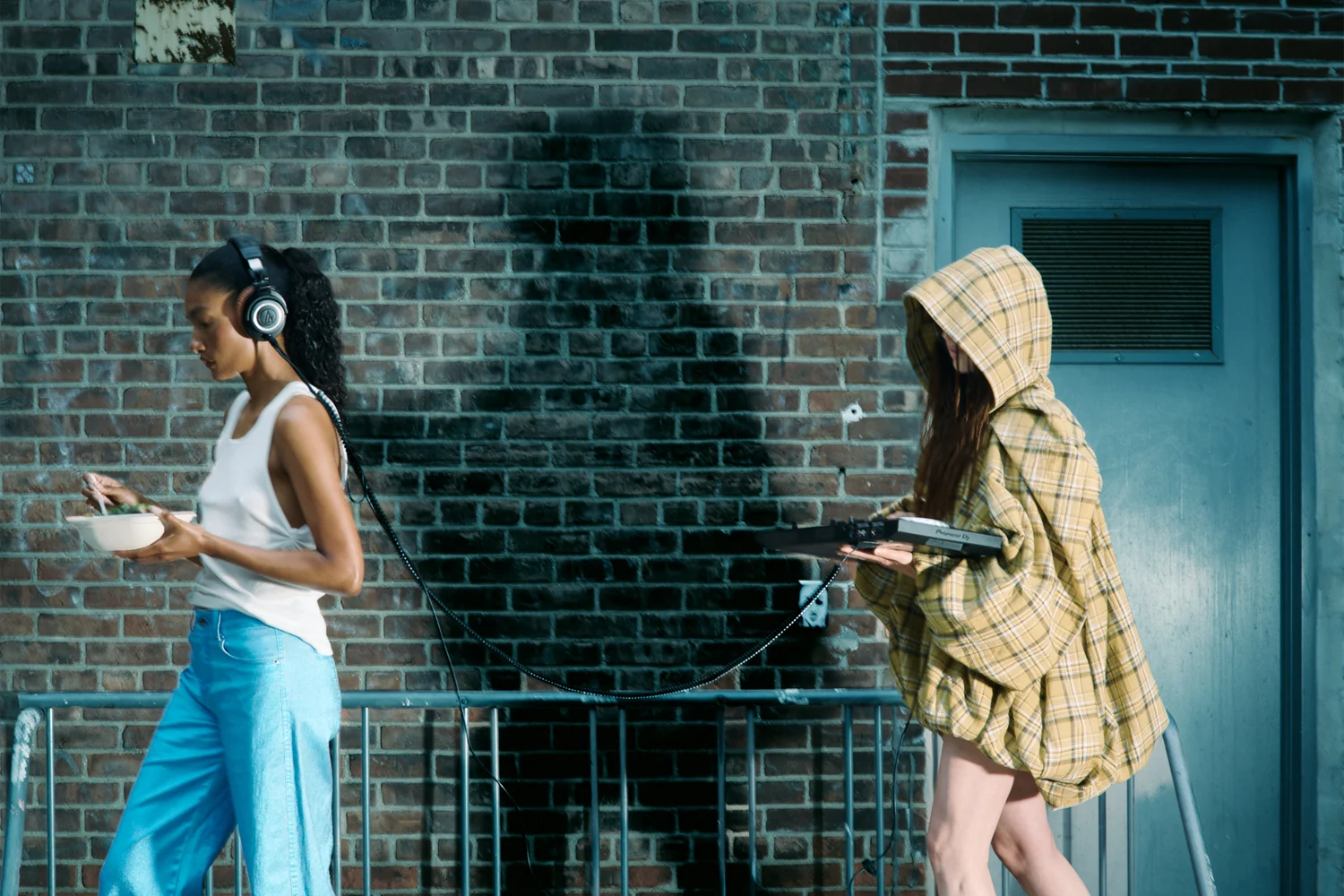
Marie Davidson and the not sustainable logistics of the entertainment industry
In City of Clowns, Marie Davidson dismantles the pressure to always be visible: flights, luggage, check-in, endless lines, delays, cancellations
Marie Davidson, the album City of clowns: the relentless life of a touring artist between airports and constant travel
There’s a detail in the daily life of an artist like Marie Davidson that people often forget or take for granted: the logistics. Flights, luggage, check-in, endless lines, delays, cancellations. Multiply that by ten to fifteen shows a month and it’s easy to feel alienated, lost somewhere in the world.
When I call her, Marie is in Crete, preparing for a club festival. One day, one show, then off to the next stop of a packed tour, especially intense since the release of her latest album City Of Clowns in February on the Belgian label DEEWEE, run by the Dewaele brothers, better known as Soulwax (or 2manydjs behind the decks).
She’s the first to confirm the draining rhythm of this life: “The hardest part? Airports and planes. You never get used to them, even after years.”
Still, July was “quiet” for her, with “only seven” shows. That means after Crete she’ll head back briefly to Montreal, then four days later fly to the United States. A short stay, just enough to highlight the speed of her schedule this year.
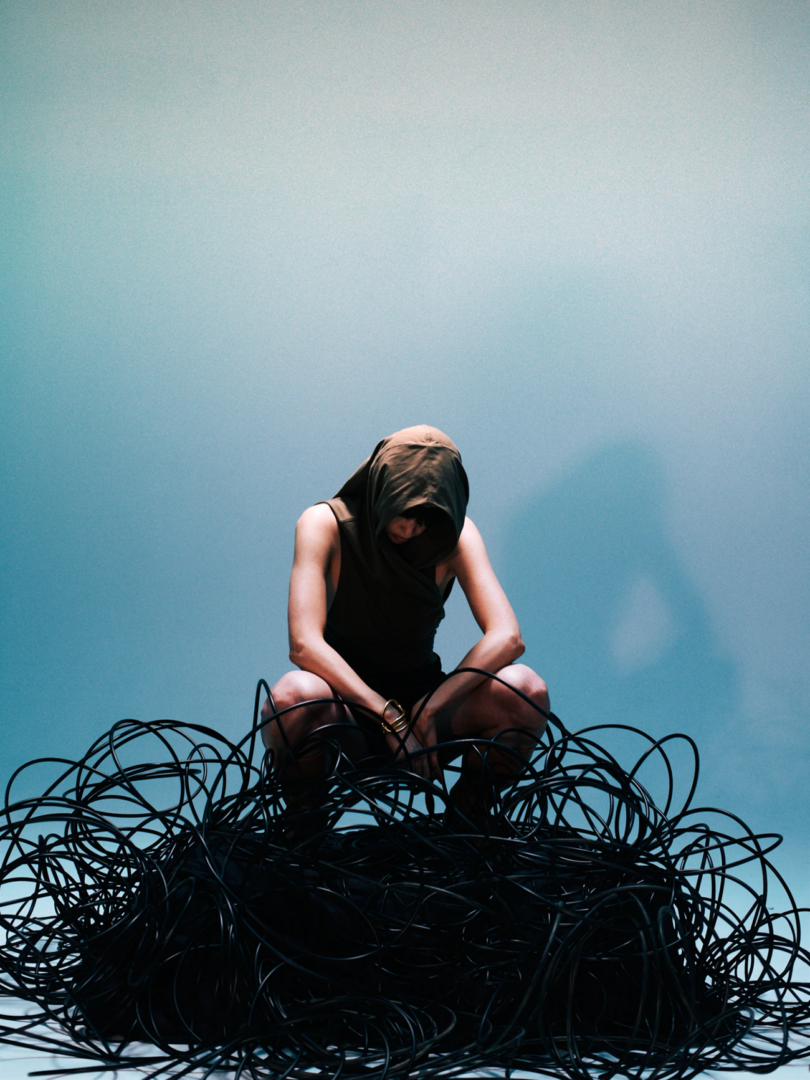
City of Clowns by Marie Davidson: an album built slowly through pauses and new starts
The new album City of Clowns has been well received by both audiences and critics. Marie Davidson, with her usual irony, suggests asking the fans directly, but admits: “A reliable way to know if the music works is if people are dancing and showing excitement.”
On stage she’s not alone. Pierre Guerineau, co-producer of the record and her partner in life, joins her. An engineer, “he handles the live sound.”
Their partnership is long-standing, and Marie reveals that “we want to start making music again as Essaie Pas next year.” The minimal wave duo, formed in 2010, has been on hold since 2019. Now, both are ready to pick it up again: “We want to do something new together. It’s been years since we’ve done anything. But.”
Unlike many colleagues who publish music obsessively, Marie Davidson has a slower approach. “I don’t believe in this idea that you have to be constantly present,” she says.
For her, it’s “a stupid game” that artists get caught up in, driven by algorithms or the push to get noticed by promoters. “If that’s what you want to do, you might as well just post selfies.”
She continues: “It makes no sense for me to release music or art just to stay in the spotlight. You can’t always be present. There are so many people in music. If you start competing with everyone else, what’s the point?”
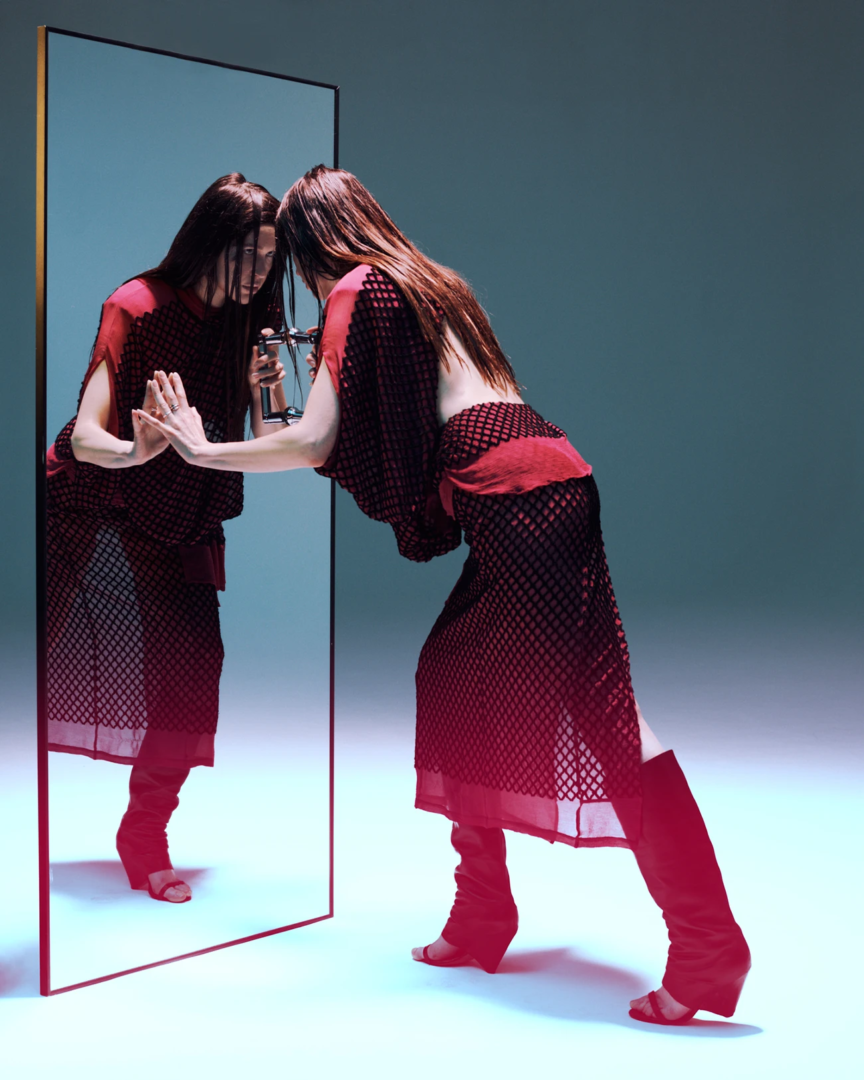
A pause to recharge and working with Soulwax at DEEWEE – Marie Davidson
Talking about City of Clowns, Marie points out precisely that between this and her previous album Renegade Breakdown (September 2020) it’s not five years but four and a half. The album itself took “two and a half years to finish.”
Part of this delay was caused by events after Renegade Breakdown. The pandemic hit. Then came a tour with her band. But in December 2021 she made a radical choice: “I quit everything. The band, the tours, my management, everything. Everything.”
The reason? She was out of fuel, both creatively and as a performer. So she stopped, took a long break to recover, to rediscover the point of creating sound. Only in summer 2022 did the push to write a new record finally return.
That’s when the Dewaele brothers came in. “I’ve been friends with them for a long time, so I reached out to see if they were interested in releasing the new record.”
Marie Davidson had an early draft co-produced with Pierre, with some tracks dating back to 2021–2022. “In 2023, I asked Dave and Steph if they were interested. I didn’t know that if you release on their label, you actually have to work with them on the production!”
It was a “nice surprise.” They told her: “Yes, you’ll come to Ghent and we’ll work on it together.” She traveled there three times.
“You can clearly hear they worked on it too. That’s what makes DEEWEE unique and recognizable among so many labels.”
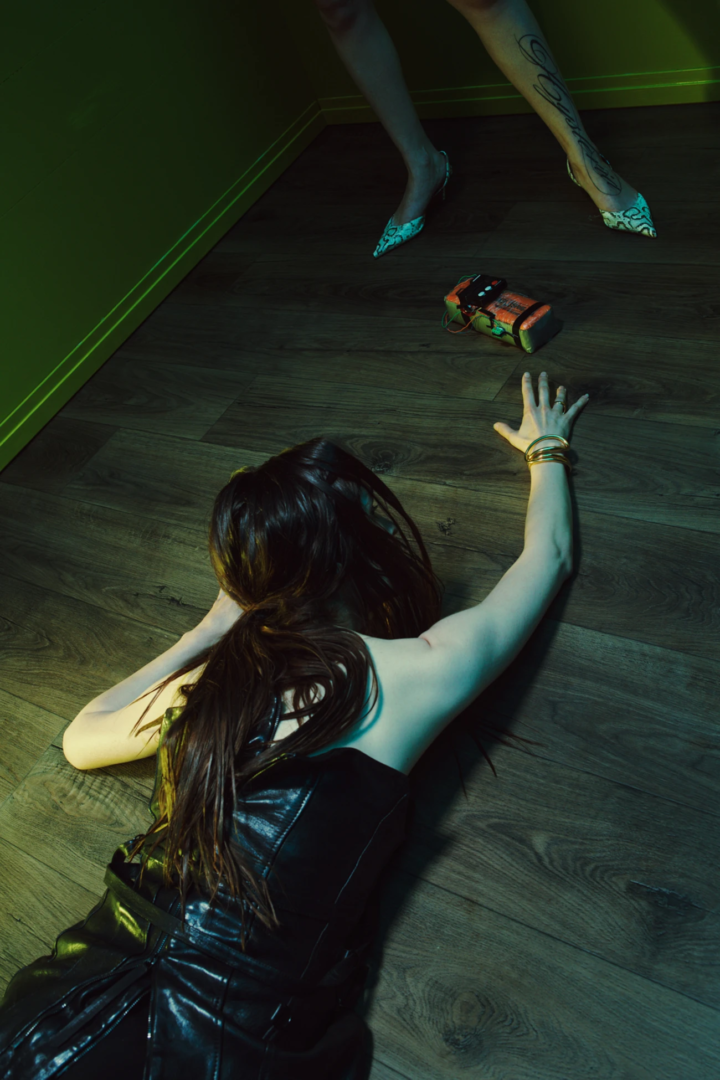
Irony, sensuality, and body: Marie Davidson’s musical philosophy
Equally recognizable is Marie Davidson’s sense of humor, present in her work. Album and track titles reveal it. She insists: “There’s no cynicism.”
She believes humor matters : “Cultivating a sense of humor today is useful to deal with all the crazy things happening in the world.” It also helps not to take oneself “too seriously.”
The track Sexy Clown is an obvious example. rony doesn’t exclude erotic tension. “I wanted to make something fun, sexy. Sensuality is something I use often,” she says.
“I like when people notice it in my music because I try. I try to make it sensual. I don’t want it to be too cerebral… I want people to feel it in their body, to dance… while also catching the meaning of my lyrics, the jokes, the critique, the commentary. That’s the intellectual side. n the end, what matters most to me is the body’s reaction.”
Her whispered spoken word, close to the listener’s ear, completes that process.
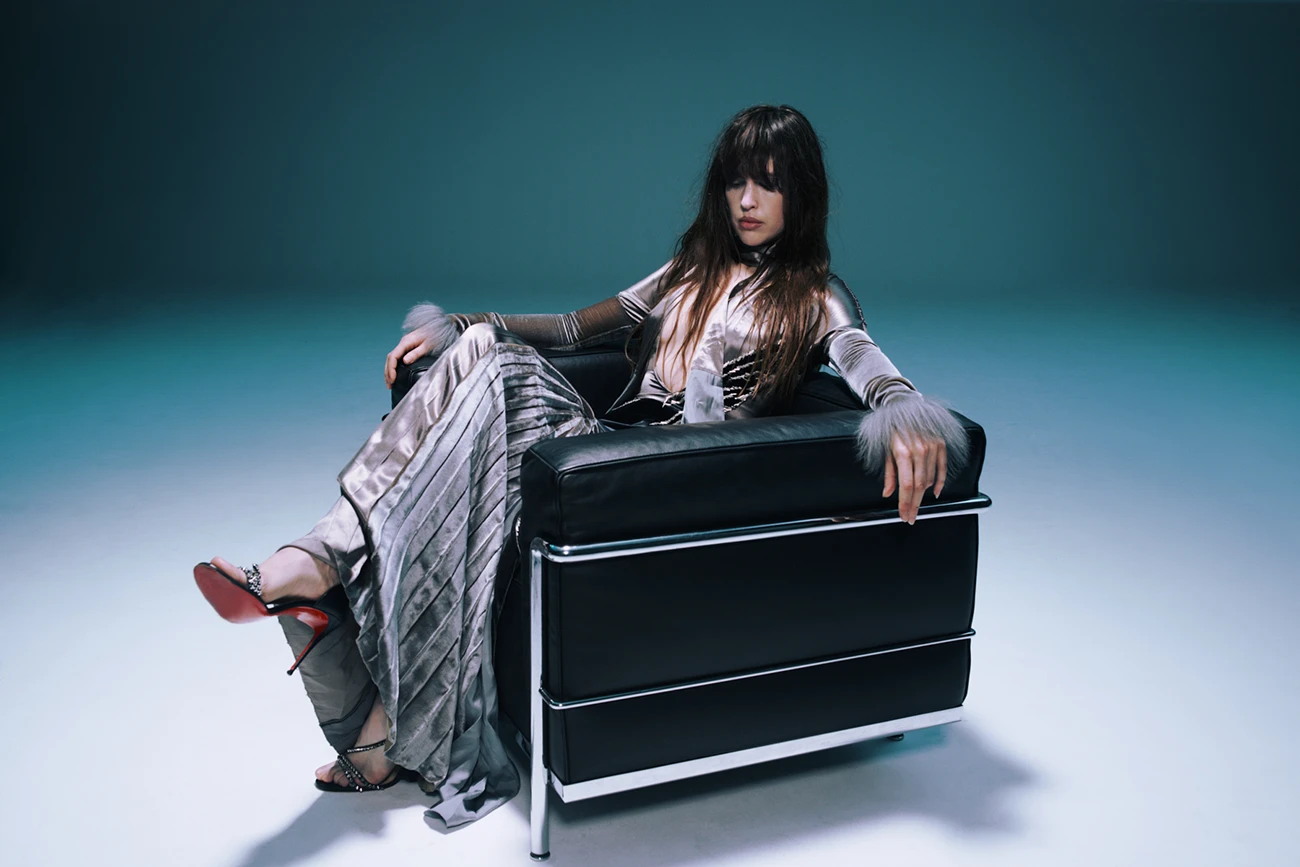
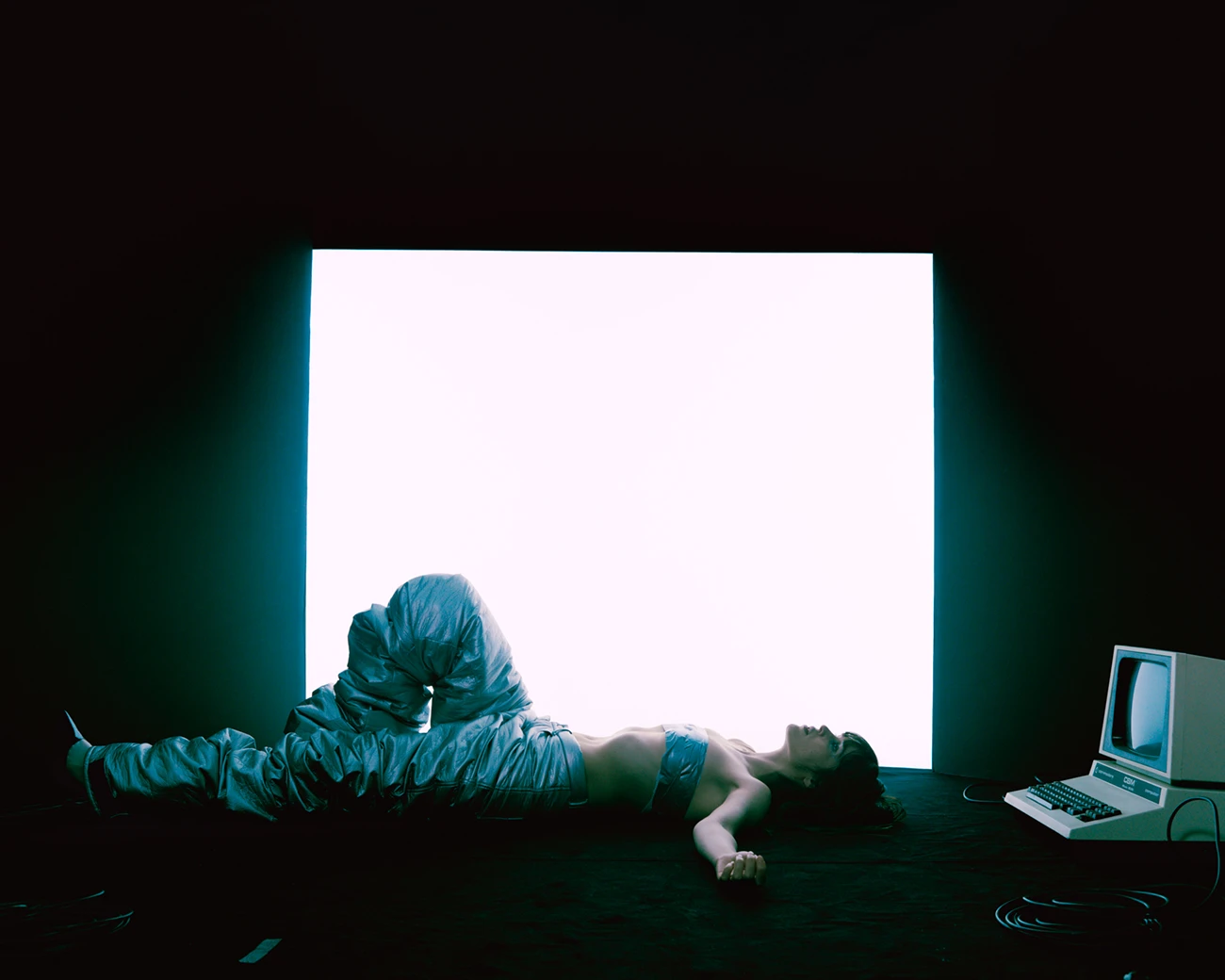
Global touring in 2025 and the search for balance
Beyond the sensual sets, Marie Davidson’s tour is wrapping up only to restart again. Pierre has just returned home. She’ll pause briefly in Crete, then back across the Atlantic, home, then Palm Springs, New York, and more.
At 38, she’s already preparing for jet lags. After the U.S., Canada. Then Australia in late August, back to North America, then Latin America. These dates excite her: “It’s a part of the world I enjoy, where I have fun playing. It’s like Latin Americans have a special connection with my music.”
The year will end with a European tour and finally Tokyo: “A nice place to end on a high note. I’ve never been there, so I hope it’ll be memorable.”
I ask bluntly if she’s a workaholic. She admits: “Yes, I have to admit it, I’m a workaholic.” ìhe also knows the need to stop: “I plan to take December and January completely off.”
Two months of forced rest. When I ask about her trick for handling jet lag, she shares a simple routine: “When I arrive in a new time zone, the first night I take a sleeping pill.”
She goes to bed early, at local time. The next morning she wakes up at a “reasonable hour,” then forces herself to “get out of bed, go outside, get a coffee, and walk.”
The goal is to “adapt to the local time zone” as quickly as possible. Otherwise, she says, the mind gets stuck elsewhere: “It can be alienating, like you’re everywhere in your head.”
Method, humor, sensuality, realism: the same elements that fuel Marie Davidson’s music.
Claudio Biazzetti
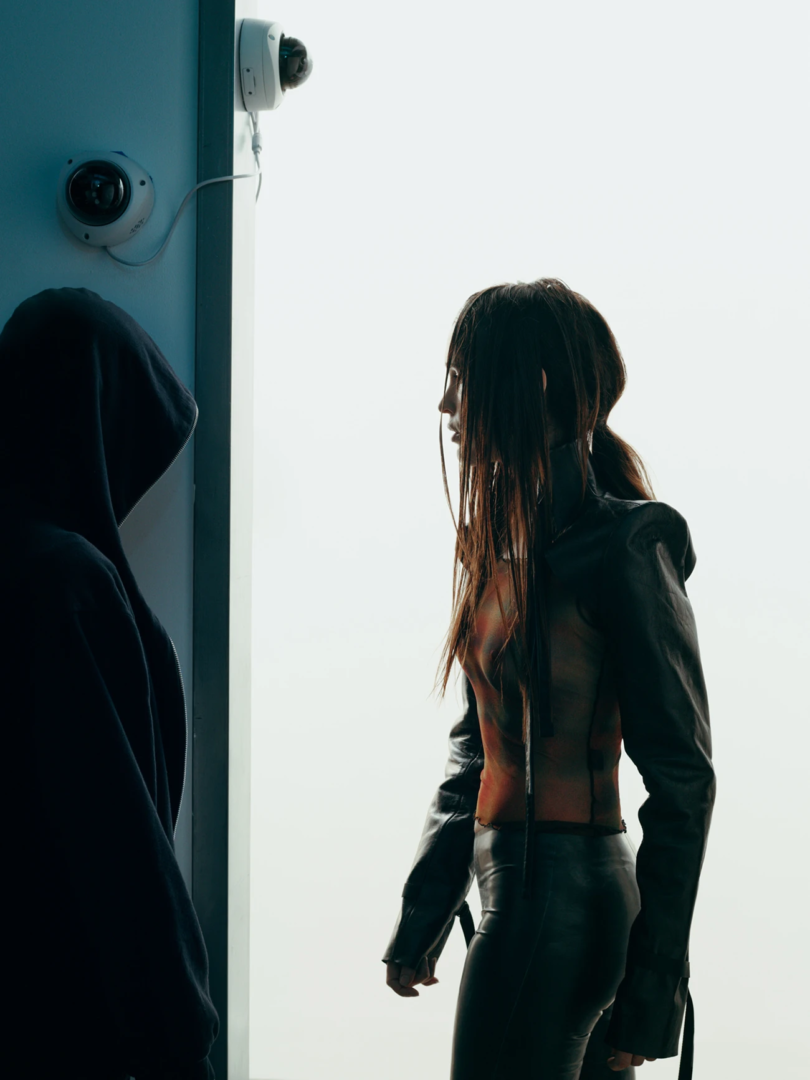
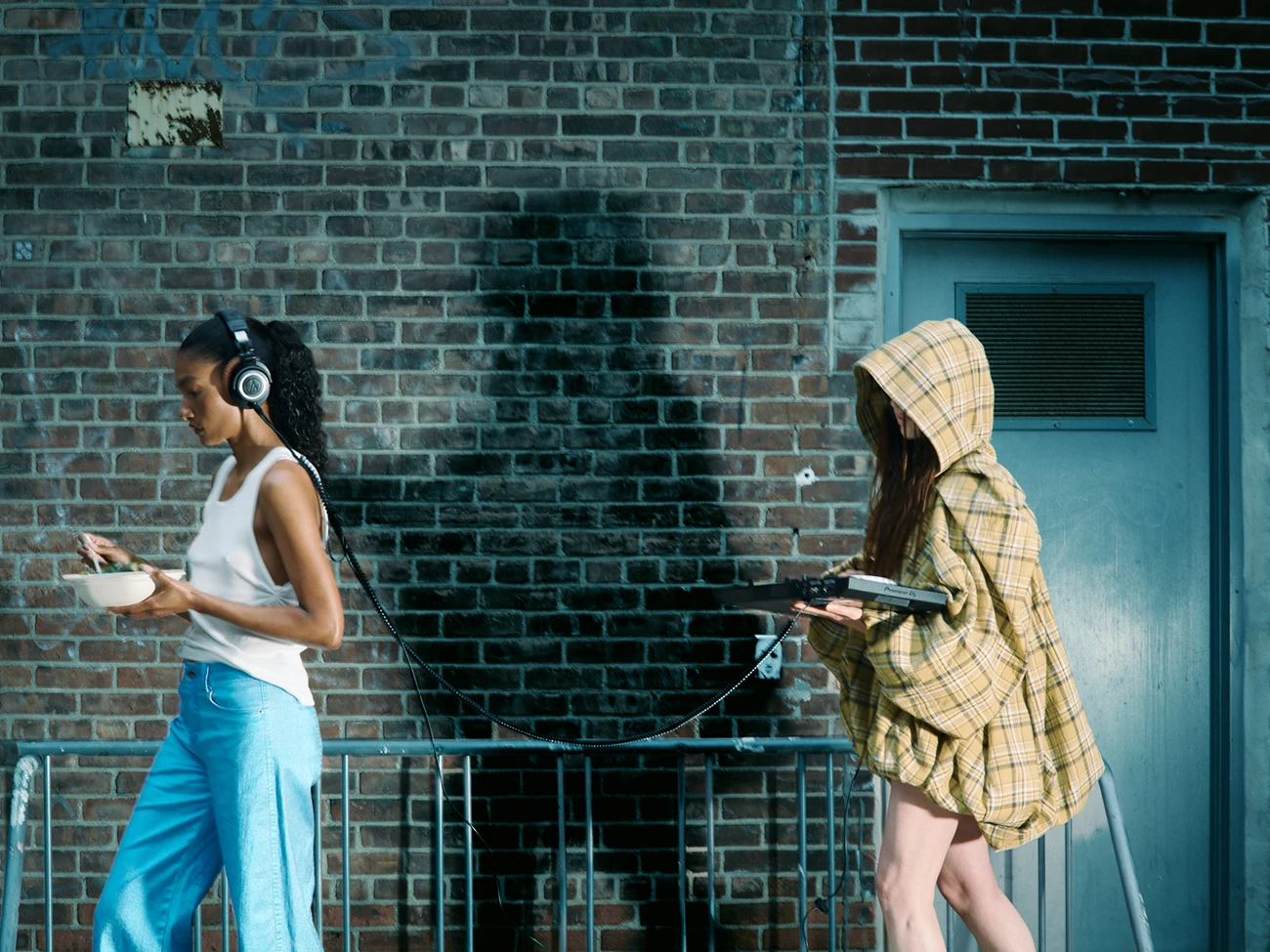
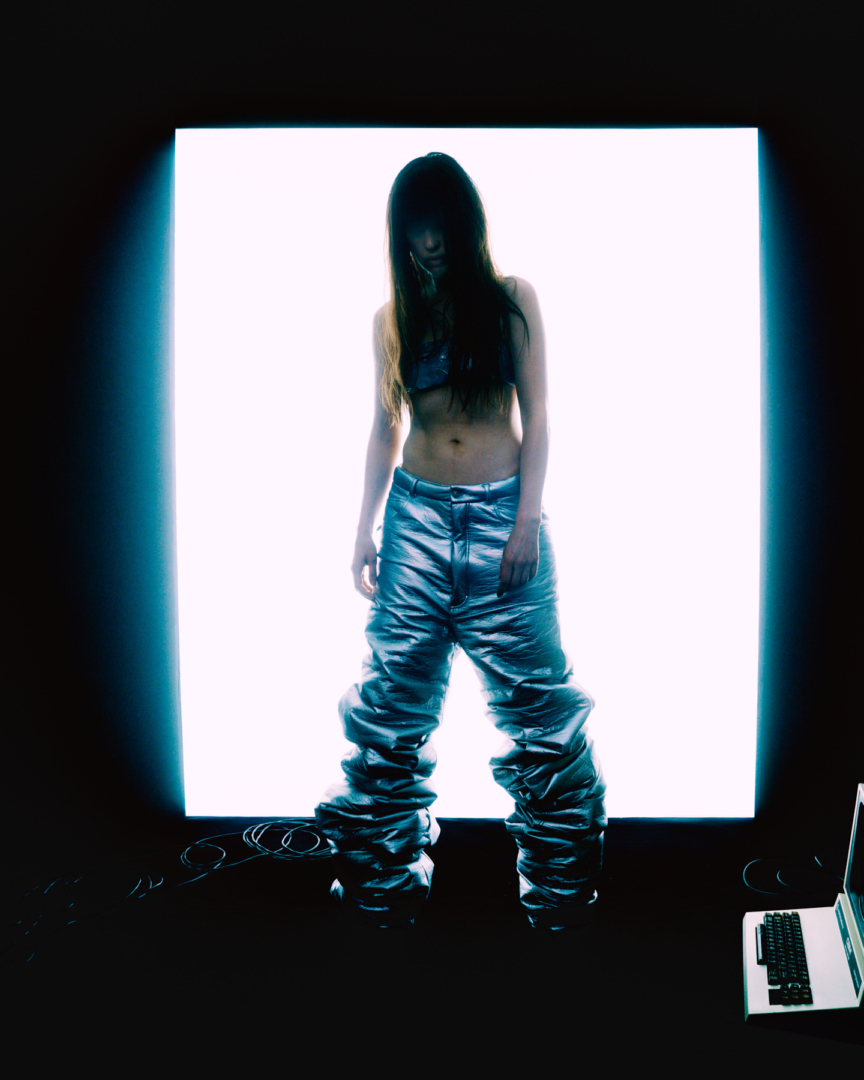
Credits
photography Geoffrey Leung
stylist Hind Matar
makeup Nana Hiramatsu using @Typology Paris
hair Ruby Howes
set design Laura Hughes
photography assistants Alonso Ayala and Allison Brooks
styling assistant Emma Nusbaum
studio Smashbox Studios Brooklyn

